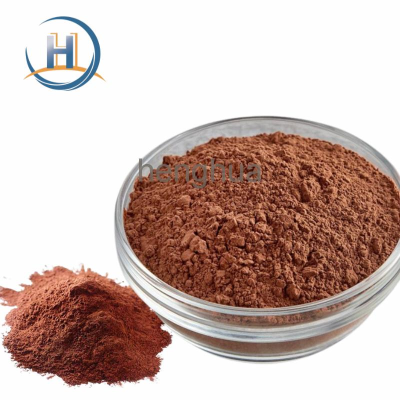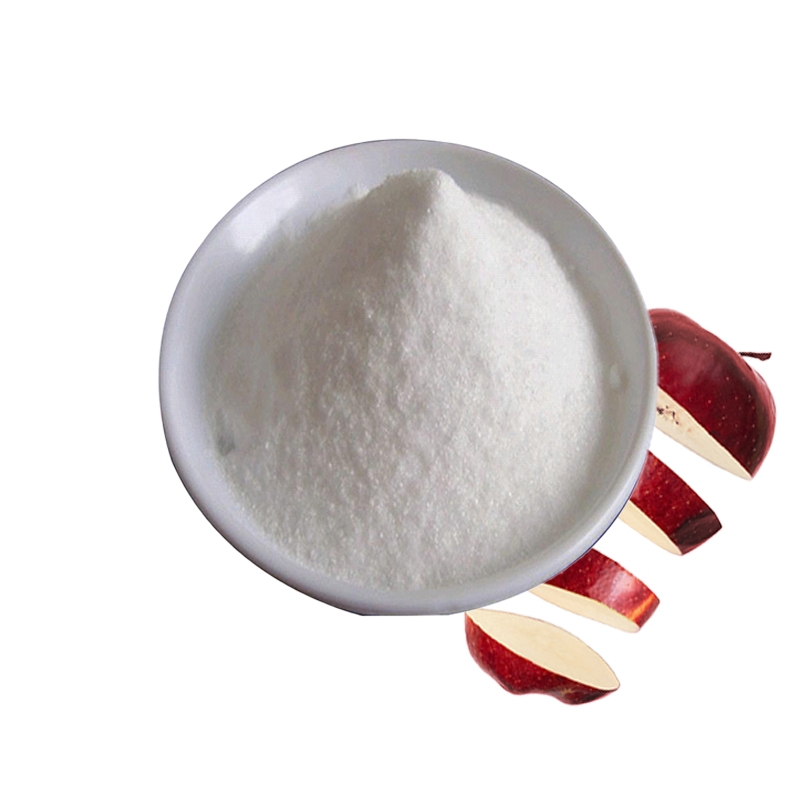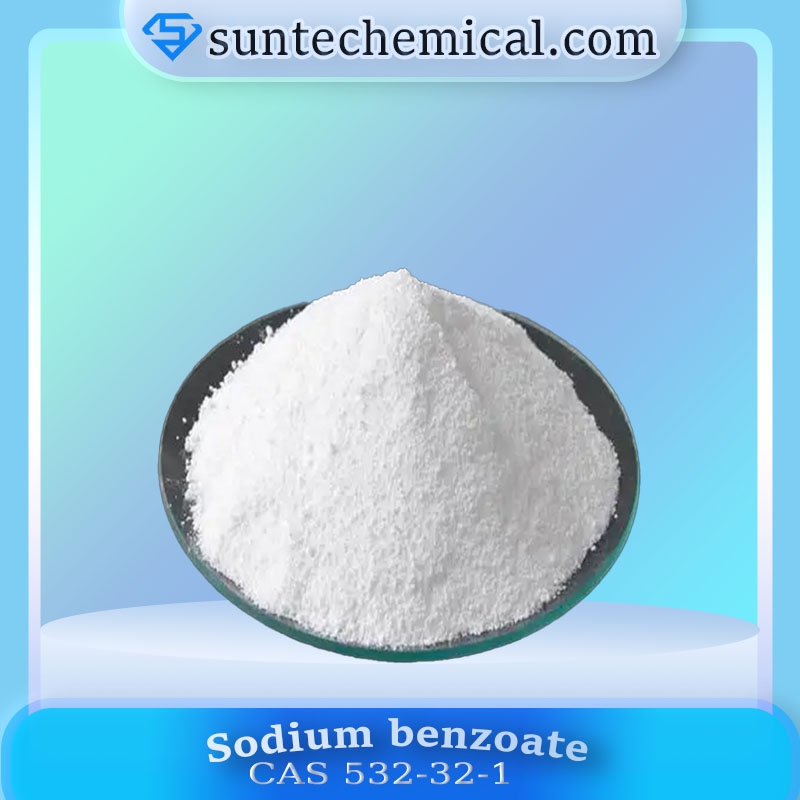-
Categories
-
Pharmaceutical Intermediates
-
Active Pharmaceutical Ingredients
-
Food Additives
- Industrial Coatings
- Agrochemicals
- Dyes and Pigments
- Surfactant
- Flavors and Fragrances
- Chemical Reagents
- Catalyst and Auxiliary
- Natural Products
- Inorganic Chemistry
-
Organic Chemistry
-
Biochemical Engineering
- Analytical Chemistry
-
Cosmetic Ingredient
- Water Treatment Chemical
-
Pharmaceutical Intermediates
Promotion
ECHEMI Mall
Wholesale
Weekly Price
Exhibition
News
-
Trade Service
Food Partners Network News October 29, Sichuan Provincial Market Supervision Bureau issued the 2020 No. 45 food safety sampling information, extracted food processing products, beverages, vegetable products, edible agricultural products, starch and starch products, condiments, tea and related products, convenience foods, biscuits, pastries, frozen food, dairy products, frozen drinks, special medical use formula food, candy products and other 15 categories of food 814 batches of samples.
the main problems found in the food industry are the excessive use of food additives, microbial pollution, detection of prohibited agricultural and veterinary drugs exceeding the standard, heavy metal pollution, quality indicators are not up to standard.
9 batches of food products detected food additives over-range over-limit use problem 9 batches of food additives detected food additives over-range over-limited use of the problem, respectively, Ya'an City, the famous mountain good flavored condiments wholesale department sales of "dry shoots", double-stream area Roche Bin bin condiment distribution department sales of "dry lily", double-stream area Jin Cao-Zhi food business department sales of "coarse shoots", "fine shoots", Chengdu Kling Trading Co., Ltd. Bean", Chengdu Taurus District, the sale of dried shoots, sulfur dioxide residue does not meet the national standards for food safety;
Sulphur dioxide, potassium sulphate (sodium), sodium sulphate, sodium sulphate and sodium hypothionate are commonly used bleach and preservatives and antioxidants in food processing.
sulfur can also be used for fumigation in the production process of dried vegetable products, dried fruits, honeydew cold fruits and other foods, in order to achieve anti-corrosion and bleaching effect.
these methods are used to produce sulfur dioxide residues.
small amount of sulfur dioxide into the body will not pose a health hazard to the body, but excessive consumption may cause gastrointestinal reactions such as nausea, vomiting and so on.
"National Standard food additives for food safety" (GB2760-2014) stipulates that the residual amount of sulfur dioxide in dried vegetables shall not exceed 0.2g/kg.
The excess sulphur dioxide residues in dry vegetable products may be due to excessive use of sulfur dioxide, potassium coking potassium sulphate (sodium), sodium sulphate, sodium sulphate, sodium hyposulphate, or excessive fumigation with sulfur during the production process.
dehydroacetic acid and its sodium salts are a low-toxic and high-efficiency preservative.
has a broad spectrum, in acid, alkaline conditions have a certain antibacterial effect, mold, yeast and bacteria have a better inhibitory effect, for sodium benzoate 2-10 times, in high doses can inhibit bacteria.
The National Standard for the Use of Food Additives for Food Safety (GB2760-2014) stipulates that food additives dehydroacetic acid and its sodium salts (in dehydroacetic acid) shall not be used in rice products.
May cause dehydroacetic acid and its sodium salts (in dehydroacetic acid meter) to exceed the standard: enterprises to increase the shelf life of the product, or make up for poor hygiene conditions in the production process of the product and over-range use;
7 batches of food detected microbial contamination 7 batches of food detected microbial contamination problems, respectively, by the county Xuyang condiment shop sales, labeled by Hanyuan County Xiangyuan Brewery produced by the "scented soybean soy sauce (brewing soy sauce)" Dujiangyan City Ji shilianhua supermarket sales, labeled by Leshan City Yanchen Food Co., Ltd. production of "ice powder", Sichuan Fuwan Business Co., Ltd. sales, the label by Jiangmen City Huasheng Cake Industry Co., Ltd. commissioned Suining City Overseas Chinese Sound Cake Industry Co. , Ltd. production of "sandwich biscuits", the total number of bacteria do not meet the national standards for food safety, the label by Leshan Leshui Mineral Water Co. , Ltd. production of 2 batches of "drinking natural spring water", Hongya County General Gangshan natural mountain spring water (Li Zejun) sales, The label is "packaged drinking water (Jiangnan snow)" produced by Guoyuan Natural Drinking Water Plant in Dongpo District of Meishan City, Sichuan Province, and "10 degrees C high-quality natural drinking water" commissioned by Dezhou Water Co., Ltd. of Sichuan Province. Copper-green fake monocytobacteria do not meet national standards for food safety.
copper-green false monocytobacteria is a water-based and foodborne pathogenic bacteria, it is widely found in water, soil, food and hospital environments, especially in the humid environment to grow and reproduce.
copper-green false monocytobacteria growth and metabolism process may produce a variety of endotoxins, external toxins and other pathogenic factors, human infection can cause localized pus inflammation and other diseases.
"National Standard Packaging Drinking Water for Food Safety" (GB19298-2014) stipulates that samples of 5 independent packages in the same batch of packaged drinking water shall not be detected with copper-green fake monocytobacteria (CFU/250mL).
the main reason for the failure of the barrel water copper-green fake monocytobacteria may be that the recycling barrel cleaning and disinfection is not thorough, causing secondary pollution to the product.
total number of mesobacteria is an indicative microbial indicator that reflects the health status of food.
"National Standard Biscuits for Food Safety" (GB7100-2015), the total number of test results in a sample of biscuits must not exceed 105CFU/g, and at least 3 test results should not exceed 104CFU/g.
standards for the implementation of food products, the total number of places in a sample of 5 test results should not exceed 5×104CFU/g, and at least 3 test results should not exceed 103CFU/g.
soy sauce (brewing soy sauce) product implementation standard is "National Standard Soy Sauce for Food Safety" (GB2717-2018) (the standard value of the total number of infrasctics specified is n-5c-2m-5000M-50000CFU/mL).
"National Standard Soy Sauce for Food Safety" (GB2717-2018), the total number of drops in the same batch of 5 independent packaging products should not exceed 5×104CFU/mL, and at least 3 independent packaging products test results should not exceed 5×103CFU/mL.
5 batches of food detection ban agricultural veterinary drugs exceeding the standard problem 5 batches of food detection restricted agricultural veterinary drugs exceeding the standard problem, respectively, Anyue County can pass the market fresh meat stalls Jiang Chenglan pork stall sales, from the Sichuan Province Leda livestock and poultry products processing Co., Ltd. "pig hind legs meat", tomycin does not meet the national standards for food safety; The "chicken liver" sold by the fresh and fresh distribution and operation department of Dongpo District of Meishan City, Enosa star does not meet the national standards for food safety
tomycin belongs to the tricycline antibiotics, can interfere with and inhibit the synthesis of proteins, thus has the role of killing microorganisms, Glollaton-positive bacteria, negative bacteria, mycomaloids, chrysanthepans have a very good inhibitory effect, is widely used in livestock and poultry diseases.
"National Standard Food Safety In Veterinary Medicine Maximum Residual Limit" (GB31650-2019), the limit of tomycin in pork is ≤200 mg/kg.
long-term consumption of tomycin-exceeding foods, may improve the body's drug resistance.
, also known as sedatives, is mainly used for anxiety, sedative hypnosis, but also for anti-epileptic and anticonvulsants.
"Maximum Residual Limits for Veterinary Medicines in Food" (GB31650-2019) stipulates that dicepam shall not be detected in animal foods.
chlorampheniccin is a fungicide and an effective broad-spectrum antibiotic, which has better inhibitory effects on both Glocylin-positive bacteria and Glocylin-negative bacteria.
No. 250 of the Ministry of Agriculture and Rural Affairs of the People's Republic of China stipulates that chlorampheniccin is a prohibited drug and may not be detected in animal food.
is a quinoxone-type drug.
quinone drugs have broad-spectrum antibacterial effects and are widely used in the treatment and prevention of bacterial diseases such as livestock, poultry and aquatic products.
"Maximum Residual Limits for Veterinary Medicines in Food" (GB31650-2019), Enosa star has a limit of ≤200 sg/kg in chicken liver.
hydroamine parathion is a broad-spectrum, highly efficient, highly toxic, low residual parathion phosphatidamide insecticide.
the Ministry of Agriculture and Rural Affairs banned the use of hydroamine parathion on vegetables, fruits, tea, fungi and herbal herbs.
of wateramine parathion food, may cause spitting white foam, respiratory failure and other symptoms.
"National Standard Food Safety Pesticide Residual Limit" (GB2763-2019) stipulates that the maximum residual limit of hydroamine parathion in tea is 0.05mg/kg.
the wateramine parathion in the product may be due to the illegal use of related pesticides by tea farmers.
In addition to the above-mentioned non-conforming products, there is also a batch of food detected heavy metal pollution problems, 1 batch of food inspection quality indicators are not up to standard, respectively, Xichang City is willing to dry grocery store sales of "sweet potato chips", lead (to Pb does not conform to the provisions of national standards for food safety; the value of peroxide (in fat terms) does not conform to the national standards for food safety in the "Chuan Ma Crisps (Fried Pastries)" produced by Sichuan Yan's Food Co., Ltd., which are sold at Aijia Shopping Plaza in Xuanhan County.
The Sichuan Provincial Market Supervision Administration has ordered Chengdu, Zigong, Deyang, Mianyang, Guangyuan, Suining, Leshan, Dazhou, Ya'an, Meishan, Ziyang Liangshan State Market Supervision and Administration immediately organized verification and disposal, urged food production enterprises to find out the flow of products, take off-shelf recall of unqualified products and other measures to control risks;
Nonconforming Product Information (Source: Sichuan Provincial Market Supervision Administration) Unqualified - 2020 No. 45 Food Sampling Information.pdf Related Report: Sichuan Provincial Market Supervision Administration on the 23 batches of food non-conformity notice (No. 45 of 2020) This article was edited by the Food Partners Network Food Information Center, for the reference of netizens, welcome to reproduce, reprint please indicate the source! If you have any questions, news@foodmate.net.
。







